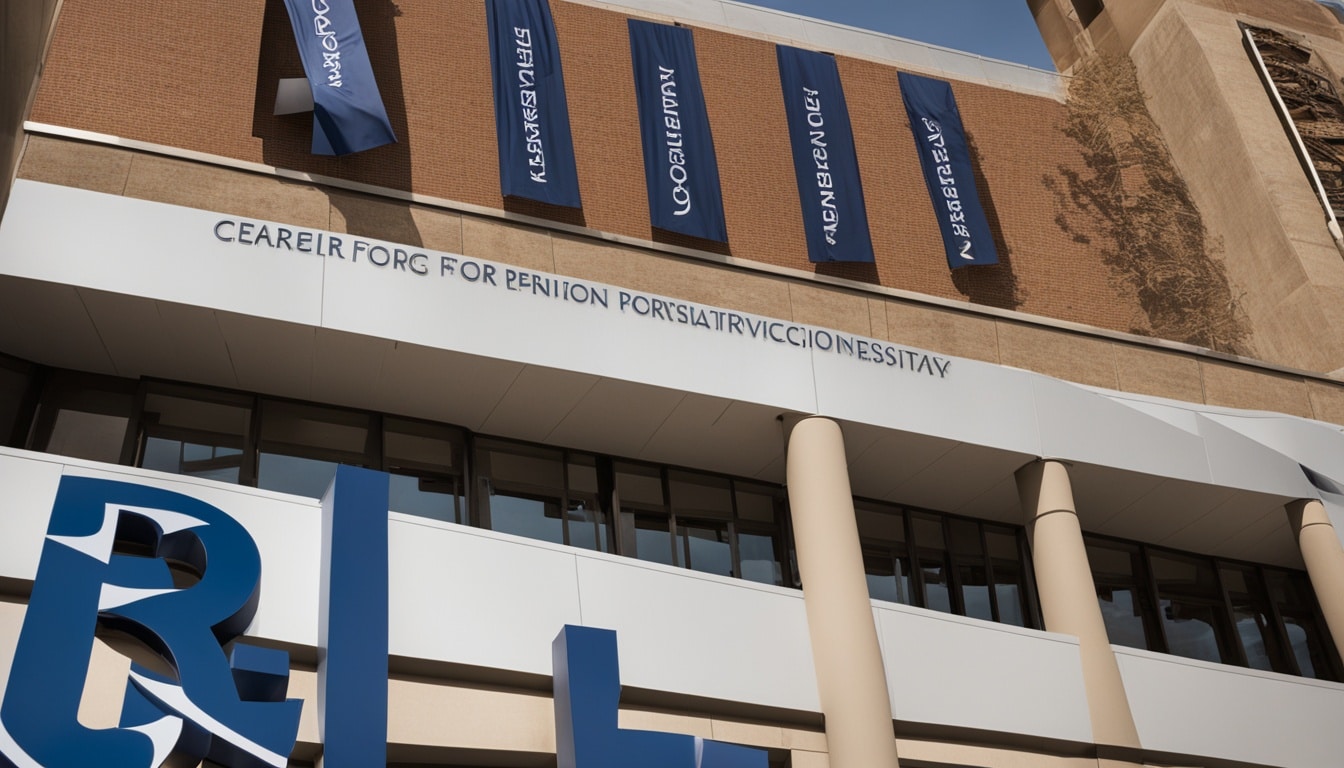Undergraduate students in the US have many chances to dive into research and special programs. These chances help them grow in their studies and get ready for the future. They cover fields like medicine, science, technology, engineering, and mathematics (STEM).
Students can apply for summer research programs at top schools or get support from their own universities. There are also special programs for students who are underrepresented. These programs let students get real-world research experience.
This article will look into the many research programs for undergrads in the US. It will cover how to apply, where to find funding, and the big benefits of these programs. By checking out these options, students can open new doors for their studies and careers.
Key Takeaways
- Undergraduate students in the US have access to a wide range of research programs across various fields, including medicine, science, technology, engineering, and mathematics (STEM).
- These programs range from prestigious summer research initiatives at top-tier institutions to university-sponsored experiences and specialized opportunities for underrepresented groups.
- Exploring these diverse undergraduate research programs can provide invaluable hands-on experience, enhance academic and professional development, and open up new career paths.
- The article will delve into the application process, funding sources, and the transformative benefits of participating in undergraduate research programs.
- By understanding the breadth of opportunities available, undergraduate students can make informed decisions and maximize their academic and personal growth.
Prestigious Summer Research Programs for Undergraduates
Many top universities and medical centers in the U.S. have summer research programs for undergrads. These programs let students work with famous professors, learn new research skills, and check out career paths they like.
Albert Einstein College of Medicine Summer Undergraduate Research Program
The Albert Einstein College of Medicine’s Summer Undergraduate Research Program (SURP) is a top choice. It lets students dive into biomedical research with expert mentors. They learn about medical research and share their results at a big symposium.
Harvard Medical School Summer Honors Undergraduate Research Program (SHURP)
The Harvard Medical School Summer Honors Undergraduate Research Program (SHURP) is very competitive. It gives undergrads a chance to do deep research with top professors. They learn new techniques and share their work at a final event.
Stanford Summer Research Program (SSRP)/Amgen Scholars
The Stanford Summer Research Program (SSRP), also known as the Amgen Scholars program, is a big deal. It lets undergrads work on innovative research in many fields. They get mentorship, go to seminars, and share their findings at the end.
| Program | Host Institution | Focus |
|---|---|---|
| Albert Einstein College of Medicine Summer Undergraduate Research Program | Albert Einstein College of Medicine | Biomedical research |
| Harvard Medical School Summer Honors Undergraduate Research Program (SHURP) | Harvard Medical School | Medical research |
| Stanford Summer Research Program (SSRP)/Amgen Scholars | Stanford University | Multidisciplinary scientific research |
These summer research programs are a big deal for undergrads. They get to work on the latest research, team up with experts, and get hands-on experience. By joining these programs, students can check out career paths, learn important research skills, and boost their academic and career profiles.
University-Sponsored Undergraduate Research Experiences
Many universities in the US offer university-sponsored research experiences all year. These programs let students work with professors on research projects related to their studies.
Students can do independent research projects, lab work, or join ongoing research. These experiences improve critical thinking, problem-solving, and communication skills. They also boost academic and career growth.
Top universities like Stanford University, Massachusetts Institute of Technology (MIT), and University of California, Berkeley have great undergraduate research opportunities all year. These campus research programs let students explore their interests, work with top professors, and get valuable research experience for undergraduates.
| University | Undergraduate Research Program |
|---|---|
| Stanford University | Stanford Summer Research Program (SSRP) |
| Massachusetts Institute of Technology (MIT) | Undergraduate Research Opportunities Program (UROP) |
| University of California, Berkeley | Undergraduate Research Apprentice Program (URAP) |
Joining these university-sponsored undergraduate research programs can change a student’s path. It helps them learn key skills, make important connections, and improve their academic and career paths.
Undergraduate Programs at Major Medical Centers

Major medical centers and research hospitals offer unique opportunities for undergraduates. Students can work with top clinicians and scientists in top facilities. They get to see the latest technologies and techniques up close.
Mayo Clinic Summer Undergraduate Research Fellowship
The Mayo Clinic Summer Undergraduate Research Fellowship is a top program. It lets students work on medical research projects at the famous Mayo Clinic. They work with experienced pros, covering topics like undergraduate research programs medical centers and medical research internships.
This program is a great way to get hands-on undergraduate research experience medical field. It helps students understand the medical field better.
Memorial Sloan-Kettering Summer Undergraduate Research Program
The Memorial Sloan-Kettering Summer Undergraduate Research Program is another great option. It gives undergrads summer research opportunities at hospitals. They work with top researchers at the Memorial Sloan-Kettering Cancer Center.
This program is a chance for undergrads to dive into undergraduate research programs medical centers. It helps them explore careers in the medical field.
“The opportunity to work alongside world-class researchers and clinicians at a leading medical center was truly transformative. I gained invaluable hands-on experience and a deeper understanding of the medical field.”
– Former participant in the Memorial Sloan-Kettering Summer Undergraduate Research Program
Opportunities for Underrepresented Groups in STEM
Universities and organizations are working hard to make STEM fields more diverse. They offer special research programs for underrepresented groups. These programs help students from different backgrounds, like racial and ethnic minorities, first-generation college students, and those from low-income areas.
University of Chicago Leadership Alliance Summer Program
The University of Chicago Leadership Alliance Summer Program is one such effort. It gives undergraduate research programs underrepresented groups a chance to work on advanced research. They also learn leadership skills and explore STEM careers. The program is for students from underrepresented groups and includes research, workshops, and mentorship from STEM experts.
University of Oklahoma Native American Summer Research Experience
The University of Oklahoma Native American Summer Research Experience is another great program. It’s for Native American students and offers stem research opportunities for minorities. The program creates a supportive space for students to dive into research, meet industry pros, and learn about STEM fields. It aims to increase diversity in undergraduate research by focusing on underrepresented students.
“These specialized programs are instrumental in empowering underrepresented students and cultivating a more diverse and inclusive STEM landscape.”
These programs are key to helping underrepresented students succeed in STEM. By offering summer research programs for underrepresented students, schools and groups are making sure STEM fields mirror our society’s diversity.
Undergraduate Research in Specialized Fields
Many undergraduate research programs let students explore different scientific and medical areas. But, some places offer specialized research projects. The University of Michigan Cancer Research Internship Program (CaRSIP) is one example. It lets students work with experts on cancer-related research.
The CaRSIP program focuses on undergraduate research opportunities by subject. It’s all about cancer research. Students work with top researchers. They learn about the tough challenges and new discoveries in oncology.
This undergraduate research program is great for students who love cancer research. It helps them grow their skills and knowledge in this area.
“The CaRSIP program has been an invaluable experience, allowing me to dive deep into the world of cancer research and collaborate with renowned experts in the field. It has truly been a transformative opportunity that has solidified my passion for pursuing a career in this specialized area.”
Universities and research places offer undergraduate research opportunities in specialized fields. These programs give students unique experiences that boost their studies and careers. They’re perfect for students aiming for advanced studies or specific research careers.
How to Find and Apply for Undergraduate Research Programs

Finding undergraduate research programs can seem overwhelming. But, there are many resources and strategies to help students. These can make it easier to find and apply for these important experiences.
Universities and research places list their undergraduate research programs on their websites. You can find details on the application process, who can apply, and when to apply. Students can also look at the National Science Foundation’s REU Sites program. It lists many research chances all over the country.
Academic advisors, career centers, and professors can also help. They can suggest undergraduate research programs that fit your interests and goals. With these tips, students can go through the application process smoothly. They can find the perfect program to boost their studies and career.
- Look at university and research institution websites for undergraduate research programs
- Check out databases like the National Science Foundation’s REU Sites program for lots of research chances
- Talk to academic advisors, career centers, and professors for advice on undergraduate research programs
“Participating in an undergraduate research program can be a transformative experience, allowing students to apply their classroom knowledge to real-world research projects and gain valuable hands-on experience.”
Undergraduate
The term “undergraduate” means students getting their first bachelor’s degree at a college or university. Undergraduate education usually takes four years. Some programs might be shorter or longer. Students take general education courses and specialized courses in their chosen undergraduate studies or field.
Undergraduate degrees teach critical thinking, research, and problem-solving. They prepare students for jobs or more education after graduation. This education makes students well-rounded with a broad knowledge and skill set.
Undergraduate programs let students learn by doing, research, and join clubs. There are many options, from undergraduate studies in science and humanities to special programs in business, engineering, or arts. Students can find programs that match their interests and career plans.
| Undergraduate Degree | Average Duration | Key Features |
|---|---|---|
| Bachelor of Arts (BA) | 4 years | Focus on liberal arts, humanities, and social sciences |
| Bachelor of Science (BS) | 4 years | Emphasis on science, technology, engineering, and mathematics (STEM) subjects |
| Bachelor of Fine Arts (BFA) | 4 years | Specialized programs in visual arts, performing arts, or design |
There are many undergraduate studies and undergraduate programs to choose from. This lets students make their education fit their interests and goals. It helps them start a fulfilling and successful future.
Benefits of Undergraduate Research Experience

Being part of undergraduate research programs has many benefits for students. It lets them use what they learn in class on real projects. This helps them develop practical skills and a better grasp of their field.
It also boosts their critical thinking, problem-solving, and communication skills. These are key in both school and work life.
Undergraduate research helps students figure out their career paths. It connects them with experts in their field and makes them stand out when applying to grad school or jobs. These research experiences let students dive deep into their interests, improve their research abilities, and learn about the research process.
The importance of undergraduate research is huge. It teaches students to value the scientific method and the importance of research in advancing knowledge. This value of undergraduate research experience can greatly influence a student’s future, preparing them for success.
In short, undergraduate research is a game-changer. It brings many benefits to students, from improving their skills to helping them decide on their career paths. These research chances are a great way for students to grow personally and professionally.
“Undergraduate research is a cornerstone of academic excellence, fostering critical thinking, problem-solving, and a deep appreciation for the scientific process.”
Funding Sources for Undergraduate Research
Doing undergraduate research can pay off, thanks to many programs offering stipends, housing help, and travel funds. The main funding source is the National Science Foundation’s (NSF) Research Experiences for Undergraduates (REU) Sites program.
National Science Foundation REU Sites Program
The NSF REU Sites program gives grants to universities and research centers for summer programs for undergrads. Students get to work with faculty and grad students on top research projects. This gives them valuable hands-on experience and connects them with the scientific world.
Students can also look for funding from their own schools, private foundations, or government agencies. Many colleges and universities have grants or scholarships for undergrad research. Groups like the American Chemical Society and the American Psychological Association also offer funding for students.
| Funding Source | Details | Eligible Students |
|---|---|---|
| National Science Foundation REU Sites Program | Grants to institutions to host summer research programs for undergraduates | Undergraduate students in STEM fields |
| Institutional Grants and Scholarships | Funding opportunities offered by colleges and universities for undergraduate research | Undergraduate students at the host institution |
| External Grants and Scholarships | Funding from private foundations, professional associations, and government agencies | Undergraduate students in specific fields or with particular backgrounds |
By looking into these different funding options, undergrads can find the support they need for their research. This helps them gain valuable research experience.
Also Read: What Are The Admission Requirements For Northwestern University?
Conclusion
The United States has many undergraduate research opportunities. These can greatly improve a student’s education and career. From top summer programs at famous schools to special programs for underrepresented groups, there are many ways for students to get hands-on research experience.
These programs give students important skills and knowledge. They also lead to career and graduate school chances. By joining these programs, students can open new doors and set themselves up for success.
In summary, this article highlights the many research opportunities for undergrads in the US. It talks about the benefits of joining these programs and the variety of options available. As students look into these, they can find new chances and prepare for their future.
FAQs
Q: What is an undergraduate degree?
A: An undergraduate degree typically refers to earning a bachelor’s degree in a specific area of study at a university or college.
Q: How long does it take to complete an undergraduate degree?
A: Most undergraduate degree programs take four years to complete when pursued full-time.
Q: What is a minor in a degree program?
A: A minor is a secondary area of study that complements the major in an undergraduate academics program.
Q: What are some common areas of study for undergraduate degree programs?
A: Some common areas of study for undergraduate degree programs include business administration, political science, arts and sciences, and secondary education.
Q: What is the difference between an associate degree and a bachelor’s degree?
A: An associate degree typically takes two years to complete at community colleges, while a bachelor’s degree usually takes four years at a university or college.
Q: What does it mean to prepare for postgraduate study?
A: To prepare for postgraduate study, students may first earn an undergraduate degree before pursuing advanced degrees such as master’s degrees and doctoral programs.
Q: How can I get admission to undergraduate degree programs in the US?
A: To gain admission to undergraduate degree programs in the US, students typically need to apply directly to the program at the university of their choice and meet specific academic requirements.
Source Links
- https://www.pathwaystoscience.org/undergrads.aspx
- https://www.aamc.org/career-development/affinity-groups/great/summer-undergrad-research-programs
- https://www.nsf.gov/crssprgm/reu/